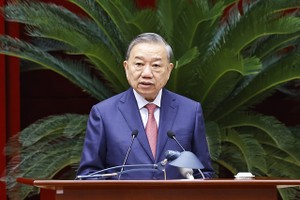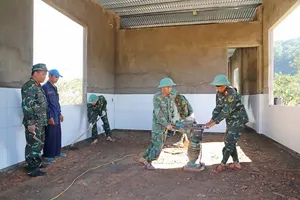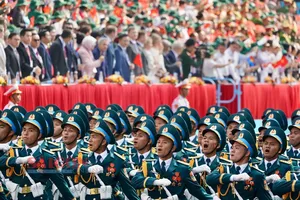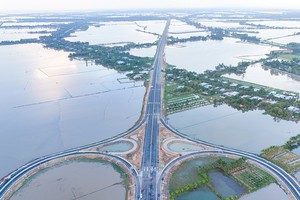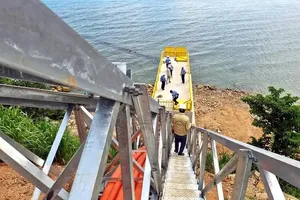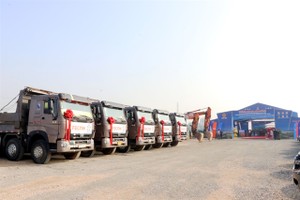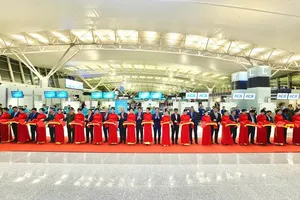Wildlife trafficking in Viet Nam and the high demand for exotic meat, jewelry, medicine and even pets is a threat not only to bio-diversity, but also to public health, according to environment experts.
Experts said the illegal trade of products, which has both domestic and international origins, increases the risk of spreading diseases because trafficked animals are not quarantined.
According to the Forest Protection Department under the Ministry of Agriculture and Rural Development, about 5,400 violations related to wildlife management and protection were reported across the country over the last five years. Nearly 60,000 endangered wildlife species were seized.
In February, customs officers at Noi Bai International Airport and other agencies detected 180kg of ivory hidden in personal luggage from Angola to Viet Nam.
Last November, customs officers at Hoanh Mo Bordergate in the northern Quang Ninh Province found about three tonnes of ivory and pangolin hidden in perch-carrying boxes.
Last August, customs and police found 593kg of ivory and 142kg of rhino horns at Tien Sa Port in central Da Nang. Further investigation helped them to find an additional 2,181kg of ivory and 4,000kg of pangolin that had been illegally imported from Nigeria and Malaysia by the Hung Huy Bao Ltd Company.
Last December, police in HCM City caught a pet store owner in the process of delivering nine water rats and a black-shanked douc langur to his clients who buy exotic animals to raise as pets.
The owner, Huynh Anh Khoa, 23, admitted to police that he had bought the animals in Thailand and that none of the animals in his store had been quarantined.
According to the Wildlife Conservation Society (WCS), there is a trend among young people to raise wild species as pets.
The WCS warns that rodents like squirrels and rats carry the potential risk of plague. Reptiles often carry Salmonella, the name of a group of bacteria that causes food poisoning and diarrhea, and imported birds can carry the flu virus.
Difficult to handle
Nguyen Duy Giang, an official from Supreme People's Procuracy, said that in the last five years, his office investigated and prosecuted about 40 criminal cases, mostly in Hai Phong, Quang Ninh and HCM City.
Most of the wildlife trafficking cases were detected during the customs processing procedure at seaports, but recipients of the goods denied their involvement when contacted by investigators.
However, it is difficult to identify goods senders overseas because of the limitations of international judicial assistance, Giang said.
Nguyen Hung Anh, deputy head of Anti-Smuggling Investigation Department under the General Department of Customs, said that trafficked wildlife products are rarely sent back to overseas senders because of the lack of information.
However, destroying the products requires funding and, at times, many agencies have to get involved, he said.
He said wildlife trafficking is a crime comparable to the trafficking of drugs or humans, but the punishment for wildlife trafficking is insufficient.
Lawyer Bui Quang Thu from the Ha Noi Bar told Kinh te& Do thi (Economic and Urban Affairs) that under the current Criminal Code, offenders involved in raising, keeping, hunting, trafficking and trading wildlife animals would be fined up to VND500 million (US$22,500) and could receive jail sentences of seven years.
He said the punishment fails to deter violators and does not reflect the seriousness of the crime.
The amended Criminal Code 2015, effective in July 2016, mandates a stricter punishment of 15 years in jail and fines up to VND2 billion ($90,000) to violators involved in trafficking endangered wildlife species, he said, adding that he expects it will help curb the wildlife trade.


